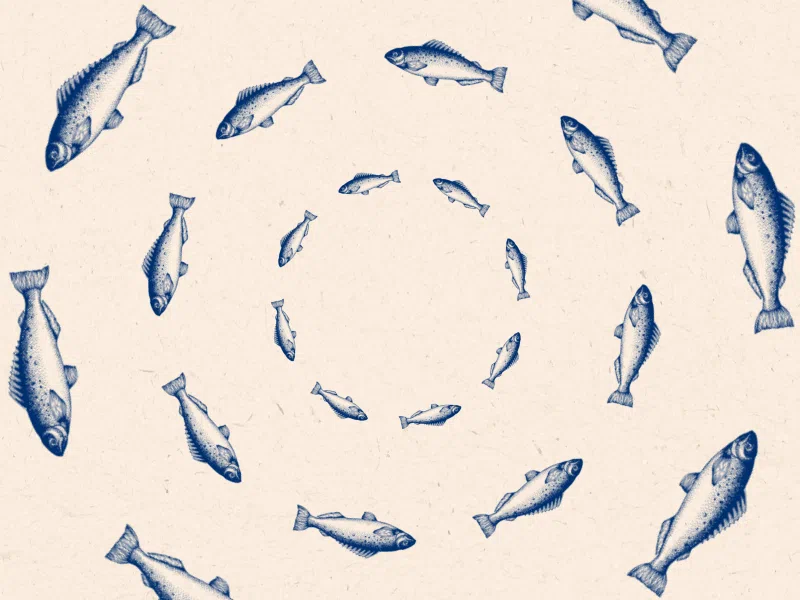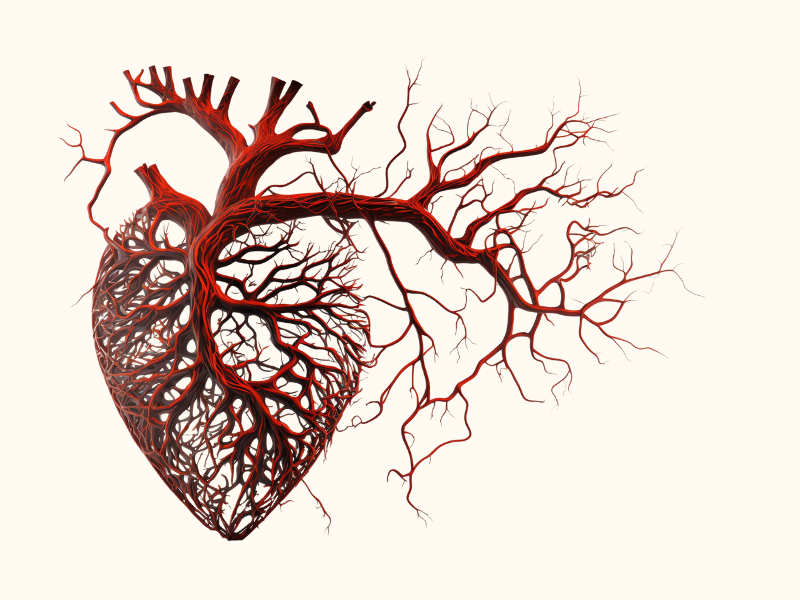10/12/2021
6 tips for having a healthy, happy holiday season

The Christmas season is officially upon us! While the holiday season is undoubtedly a joyful time of year, it can also trigger stress, unrestrained consumption of indulgent foods and drinks, a drop in physical activity, and weight gain.
Do you want to enjoy the holiday season while still supporting your health and feeling your best? Read on to learn six simple strategies that will help you enjoy the holidays without letting go of your health!
Find a healthy balance with Christmas foods
The holidays simply wouldn’t be the same without festive foods and drinks! However, when people consume these foods all season long, they may find themselves suffering from digestive distress, lethargy, and unwanted weight gain.
Completely restricting your food intake to only “healthy” foods during the holiday season isn’t the answer – this approach takes the joy out of the holidays and may lead to bingeing later on.
Instead, the key to enjoying delicious holiday foods and drinks without wrecking your health is to find a healthy balance.
At office Christmas parties, family gatherings, and in your own home, thoughtfully choose a few indulgences that you enjoy most, and allow yourself to consume those foods or drinks guilt-free.
Once you’ve selected your indulgences, keep the rest of your food and beverage intake healthy: Center your meals around vegetables, a protein, and a complex carbohydrate to keep yourself satiated and energized.
This eating strategy allows you to avoid a restrictive food mindset while still maintaining a generally healthy diet.
Navigating special diets over the holidays
If you have dietary restrictions, such as the need to be gluten-free, contribute your own gluten-free dish at holiday gatherings. This practice provides you with a healthy food option and allows you to share new recipes with your family and friends!
Intermittent fasting for preventing holiday weight gain
Research shows that the extra weight people gain over the holidays tends to stick around, accumulating over consecutive years [1]. Preventing holiday weight gain may thus be essential for maintaining a healthy body weight over the long-term.
Besides finding a balance between healthy eating and indulgence over the holidays, what else can you do to avert holiday weight gain? One strategy may be to practise intermittent fasting!
Intermittent fasting is a pattern of eating in which you cycle between voluntary periods of fasting and non-fasting each day. For example, you may choose to fast from dinner each night, say around 6 pm, until 10 am each morning, resulting in a 16-hour fast and an 8-hour feeding window each day.
Research shows that this form of fasting, also referred to as “time-restricted eating” improves blood sugar regulation and promotes weight loss in overweight individuals, without requiring people to restrict calories [2].
Intermittent calorie restriction is another option for attenuating holiday weight gain. A recent study found that when participants lowered their calorie intake by at least 50 per cent two days a week and consumed a normal diet the remaining five days of the week over the holiday season, they experienced weight loss and better blood sugar control, rather than the typical holiday weight gain [3].
The participants supplemented their diets with several metabolism-supporting nutrients, including omega-3 fatty acids and curcumin.
It is unclear whether an intermittent caloric restriction is superior or equivalent to intermittent fasting for preventing holiday weight gain, but either one may be worth a try if you’re interested in maintaining a healthy body weight this winter.
Support your immune system
Nobody wants to come down with a cough or the sniffles over the holidays. Fortunately, you can keep bad bugs at bay with botanicals and nutraceuticals that aid optimal immune function.
Cat’s Claw (Uncaria tomentosa) is an Amazonian botanical long used for its immune system enhancing properties. It contains phytochemicals called oxindole alkaloids that stimulate the immune system, fortifying your body’s natural immune defences [4,5].
Your immune system requires vitamins D and C for optimal function. Vitamin D supports immunity by increasing the activity of monocytes and macrophages, immune cells that directly fight pathogens, and by increasing the production of antimicrobial peptides such as defensin β2 and cathelicidin [6].
The primary source of vitamin D is endogenous synthesis from a precursor called 7-dehydrocholesterol in the skin after sun exposure. However, sunlight is too weak in many parts of North American during the winter to stimulate cutaneous vitamin D production.
Instead, boost your vitamin D levels by eating fatty fish, such as salmon and mackerel, and with supplements such as liposomal vitamin D [7].
Vitamin C supports immunity by enhancing the activity of phagocytes, a type of white blood cell that engulfs foreign invaders such as bacteria and viruses [8].
The serum levels of vitamin C required to battle infections are higher than can be achieved solely with food intake. A highly bioavailable form of vitamin C, such as liposomal vitamin C, is, therefore, the perfect addition to your winter wellness toolkit.
Certain fatty acids also bolster immune activity. Monolaurin, a fatty acid found in coconut and human breast milk, has immune-modulating properties and antimicrobial effects against a variety of bacteria and viruses [9,10].
Don’t skimp on sleep!
Holiday gatherings often run late into the night, cutting into your precious sleep time. Sleep deprivation reduces immune function, impairing your defences against bacteria and viruses, and increasing your risk of catching the sniffles [11].
To keep your immune system in prime shape throughout the holiday season, aim for 8-9 hours of uninterrupted sleep per night.
Wear blue-light-blocking glasses for a couple of hours before bed to optimize your brain’s production of melatonin, a hormone crucial for initiating sleep.
If you need to travel across time zones over the holidays, consider supplementing with liposomal melatonin to keep your sleep cycle in check.
Speed up your recovery from holiday indulgences
The consumption of high-fat, high-carbohydrate foods and alcoholic beverages during the holidays can stress the digestive system and liver, leading to uncomfortable gastrointestinal symptoms and lethargy.
Milk thistle, a botanical long used in traditional herbalism to support liver health, protects liver cells from the harmful effects of alcohol and reduces the metabolic damage caused by high-fat, high-carbohydrate foods [12,13].
Fortunately, you can help your body recover faster from holiday indulgences with a few potent natural products, including milk thistle, glutathione, and deep-sea minerals.
Supplementing with milk thistle after a particularly indulgent holiday party may ease your discomfort and help you recover faster.
Glutathione is the most abundant antioxidant molecule in our bodies and plays a critical role in the detoxification of alcohol. To support detoxification after a night of alcohol-filled festivities, consider supplementing with a bioavailable form of glutathione, such as liposomal glutathione [14].
- Deep-sea minerals
Alcohol suppresses the body’s production of antidiuretic hormone (ADH), a hormone produced in the hypothalamus of the brain that acts on the kidneys, causing them to conserve water. By suppressing ADH, alcohol causes the kidneys to flush out more water than usual, resulting in dehydration [15].
Acute dehydration and the subsequent loss of critical electrolytes such as sodium, chloride, and magnesium can result in uncomfortable symptoms such as fatigue and brain fog.
To help your body recover faster from alcohol consumption during the holidays, consider supplementing your filtered drinking water with deep-sea minerals, a natural blend of electrolytes and trace minerals derived from cold, pure deep-sea water.
The electrolytes in deep-sea water have been found to efficiently restore total body water – better than sports drinks, in fact! – banishing fatigue and mental lethargy so you can feel your best throughout the holiday season [16].
Boost your energy
The holiday season is an energy-demanding time of year. Go a step further than coffee and support your energy at a cellular level with NMN and B vitamins.
Nicotinamide mononucleotide (NMN) is a precursor to NAD+, a critical molecule in the energy-producing pathways in our bodies. NAD depletion may promote fatigue at a cellular level, whereas restoration of optimal NAD levels with NAD precursors has been found to enhance energy production and physical stamina [17].
Blog: NAD+: Stem cell renewal & mitochondria regeneration
B vitamins are critical cofactors in energy-producing pathways in our bodies. Fatigue is a common side effect of B vitamin insufficiency.
Supporting your body with bioavailable B vitamins throughout the holiday season may bolster your energy and stamina, helping you sail through the season with ease.
Nanoliposomal delivery systems have been found to significantly enhance the bioavailability of vitamin B12. The bioavailability of the other B vitamins may be similarly enhanced by nanoliposomal delivery systems [18].
While cold, dreary winter weather causes many people to forgo exercise, physical activity is vital for keeping your body healthy throughout the holiday season. Exercise can even help you feel better after indulgent holiday meals!
Engaging in light aerobic activity thirty minutes after a large meal has been found to blunt the body’s blood sugar response [19]. A tightly managed blood sugar response is crucial for the maintenance of long-term health. Adding in a short bout of resistance training may enhance the blood sugar benefits of light aerobic activity after a meal [20].
Blog: Improve endurance exercise performance and recovery
Manage stress
Long to-do lists and unhealthy eating behaviours over the holiday season can take a mental and emotional toll [21]. So, prevent your stress from getting out of control by engaging in stress-reducing activities throughout the holiday season, such as meditation and spending time in nature.
The holidays are a joyful but demanding time of year. Rather than letting your health go over the holidays, show your body some love by supporting it with botanicals, nutrients, and behaviours that aid immunity, boost energy, and reduce stress. These practices will help you stay centred and well throughout the season so you can enjoy the holidays to the fullest!
References
- Helander EE, et al. Weight gain over the holidays in three countries. N Engl J Med. 2016; 375(12): 1200-1202.
- Gabel K, et al. Effects of 8-hour time restricted feeding on body weight and metabolic disease risk factors in obese adults: A pilot study. Nutr Healthy Aging. 2018; 4(4): 345-353.
- Hirsh SP, et al. Avoiding holiday seasonal weight gain with nutrient-supported intermittent energy restriction: a pilot study. J Nutr. Sci. 2019. 8(11): 1-9.
- Farias I, et al. Uncaria tomentosa stimulates the proliferation of myeloid progenitor cells. J Ethnopharmacol. 2011; 137(1): 856-863.
- Aldahlawi AM. Modulation of dendritic cell immune functions by plant components. J Microsc Ultrastruc. 2016; 4(2): 55-62.
- Prietl B, et al. Vitamin D and immune function. Nutrients. 2013; 5(7): 2502-2521.
- Glowka E, et al. Drug delivery systems for vitamin D supplementation and therapy. Pharmaceutics. 2019; 11(7): 347.
- Carr AC, Maggini S. Vitamin C and immune function. Nutrients. 2017; 9(11): 1211.
- Schlievert PM, et al. Glycerol monolaurate contributes to the antimicrobial and anti-inflammatory activity of human milk. Sci Rep. 2019; 9: 14550.
- Flanagan JL, et al. Glycerol monolaurate inhibits lipase production by clinical ocular isolates without affecting bacterial cell viability. IOVS. 2016; 57: 544-550.
- Watson NF, et al. Transcriptional signatures of sleep duration discordance in monozygotic twins. Sleep. 2017; 40(1): doi: 10.1093/sleep/zsw019.
- Vargas-Mendoza N, et al. Hepatoprotective effect of silymarin. World J Hepatol. 2014; 6(3): 144-149.
- Guo Y, et al. Silymarin improved diet-induced liver damage and insulin resistance by decreasing inflammation in mice. Pharm Biol. 2016; 54(12): 2995-3000.
- Oh SI, et al. Chronic ethanol consumption affects glutathione status in rat liver. J Nutr. 1998; 128(4): 758-763.
- Roberts KE. Mechanism of dehydration following alcohol ingestion. Arch Intern Med. 1963; 112(2): 154-157.
- Keen DA, et al. The impact of post-exercise hydration with deep-ocean mineral water on rehydration and exercise performance. J Int Soc Sports Nutr. 2016; 13(17).
- Martens CR, et al. Chronic nicotinamide riboside supplementation is well-tolerated and elevates NAD+ in healthy middle-aged and older adults. Nat Commun. 2018; 9: 1286.
- Vitetta L, et al. Route and Type of Formulation Administered Influences the Absorption and Disposition of Vitamin B12 Levels in Serum. J Funct Biomater. 2018; 9(1): 12.
- Chacko E. Exercising tactically for taming postmeal glucose surges. Scientifica (Cairo). 2016; 2016: 4045717.
- Heden TD, et al. Post-dinner resistance exercise improves postprandial risk factors more effectively than predinner resistance exercise in patients with type 2 diabetes. J Appl Physiol. 2015; 118(5): 624-634.
- “Season of joy? Actually, season of stress for 88 percent of Americans.” PR Newswire. 3 Dec 2018. https://www.prnewswire.com/news-releases/season-of-joy-actually-season-of-stress-for-88-percent-of-americans-300758622.html.





